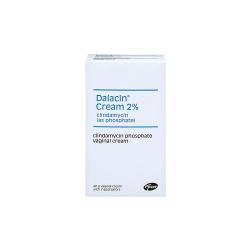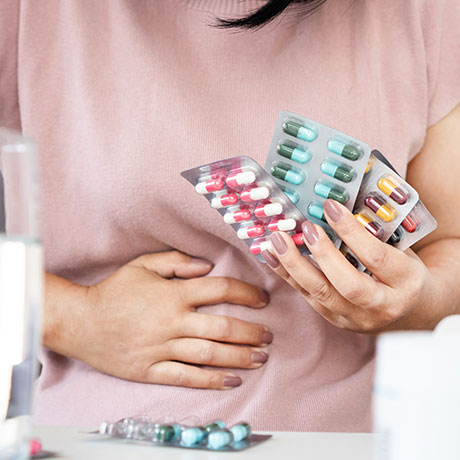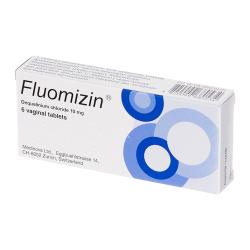Login to your account
- Prescription included
- Genuine medication
- All-inclusive service - No hidden fees
- Free next-day delivery
Bacterial Vaginosis (BV)
Get bacterial vaginosis medication with an online prescription
Bacterial vaginosis (BV), also known as gardnerella vaginosis, is an extremely common bacterial vaginal infection that affects women. BV can be a discomforting condition caused by a combination of naturally occurring vaginal bacteria. Bacterial vaginosis is not technically considered to be an STI. However, it is more common in women who are sexually active and can increase the risk of contracting other sexually transmitted infections, as well as uterus infections if left untreated.
Bacterial vaginosis is treated with antibiotics, which you can be prescribed in both oral and topical forms. Here at euroClinix, you can buy Metronidazole tablets and Dalacin cream to treat bacterial vaginosis.
Available Treatment(s)

- Treats bacterial and parasitic infections
- Fast-acting and well-tolerated
- Kills infections at the source

- Direct relief for BV symptoms
- Fast-acting treatment
- Apply once daily for 7 days
What is bacterial vaginosis?
Bacterial vaginosis (BV) is a bacterial infection located in the vagina. It is an extremely common infection, as the balance of bacteria in the vagina is so subtle. It is also possible to get recurrent bouts, just like other yeast-based infections such as thrush, and can have similar symptoms too.
The most common trigger of BV is sexual intercourse, however, the infection isn't classed as an STI for several reasons. First, it does not affect male genitalia and isn't transferred between men and women through sexual activity, but caused by a change in bacteria in the vagina. Cases of BV can be transferred through the same-sex relationships, meaning the bacterial infection is gender-based and not sex-based.
What causes bacterial vaginosis?
An overgrowth of one type of bacteria leads to BV. Usually lactobacilli (the ‘good’ bacteria) outnumbers the ‘bad bacteria’ (anaerobes) in the vagina. This is because lactobacilli produce lactic acid, which makes the vagina slightly acidic to prevent overgrowth of anaerobic bacteria. However when lactobacilli levels are low, it causes an overgrowth of anaerobic bacteria, this causes BV. This overgrowth disrupts the natural balance of the vagina, which can result in an unpleasant smell and an increase in discharge. There is no equivalent of BV in men and the infection cannot be passed on through sexual contact like STIs and even yeast infections such as thrush.
The bacteria in the vagina is largely harmless, but there is a delicate balance of bacteria so it comes as no surprise that BV is extremely common as a slight change in this balance can cause symptoms.
There are certain lifestyle factors that could mean you are more at risk of developing BV. The links between BV and some of these risk factors are not well understood, but all result in a higher prevalence of BV.
- being sexually active - having sex with multiple female or male partners (although it is not transferred by male partners)
- using the intrauterine device (IUD)
- use of other foreign objects such as sex toys
- using scented soaps to clean the vagina
- cleaning the vagina excessively
- douching - a small device that uses water or scented products to clean the vagina
- use of perfumed bubble bath or other products
- use of vaginal deodorants - come in many forms such as suppositories or powders
- not washing your underwear with a strong detergent
It is not advised to douche or use scented products in and around the vagina. In fact, the vagina is self-cleaning so even products designed to clean the genitals should never be used.
Certain groups of women will be at a higher risk of contracting this infection such as those who:
- smoke
- are in same-sex relationships or have female sex partners
- frequently change sexual partners
- are pregnant - because of hormone changes
- have a natural lack of lactobacilli bacteria
What are the symptoms?
As bacterial vaginosis symptoms are not uncomfortable or painful, they may not be as immediately apparent, especially compared to the symptoms of other STIs and yeast infections. In fact, according to the NHS, 50% of women who have BV don’t realise they have it. This is because the infection occurs internally, coating the walls of your vagina. BV can also be mistaken for other vaginal conditions as well such as thrush, vaginitis and some STIs but the symptoms of BV usually involve the following:
- abnormal vaginal discharge that is white or grey and watery in texture
- unusual smell (typically described as a strong, fishy smell)
- you may also notice that your menstrual blood carries a distinct odour and has a different consistency
The main difference between BV and other vaginal conditions is that BV does not typically cause any soreness or itching. Symptoms mainly affect your discharge or vaginal fluid. Sometimes there are no visible symptoms of BV, however regardless of whether you experience any; it is fully treatable with the correct antibiotics.
Are there any complications from bacterial vaginosis?
An episode of BV is not dangerous for the vast majority of women, and it can be treated quickly and effectively. This infection should always be treated as it can cause long-term health problems if left. Not only will complications arise if it is left untreated, but your susceptibility to other STIs or STDs will increase such as gonorrhoea, herpes simplex virus and chlamydia.
BV is very common in pregnant women. However, there is only a small chance that BV can result in complications during pregnancy such as low birth weight, miscarriage or premature delivery. You’re also more at risk of complications if you have just had gynaecologic surgery, like a hysterectomy or dilation and curettage (D&C). This is because you are at more risk of an infection post-surgery.
If you think you have symptoms of an infection, such as a temperature, feeling sick or severe pain in the stomach, you should seek immediate medical advice.
Pelvic Inflammatory Disease (PID)
BV can also sometimes cause PID. This is an infection of the uterus and the fallopian tubes caused by bacteria from the vagina or cervix travelling up to reproductive organs higher up. PID, like BV, doesn’t present many symptoms. If you have PID, you may experience deep pelvic pain, heavy or painful periods and pain whilst peeing, as well as typical symptoms of an infection. If you think you have PID, you should speak to your GP, a women’s health professional (gynaecologist) or sexual health clinic. They will need to do a pelvic exam and take swabs of your vagina and cervix. There is no single test for PID so they might need to run more tests if your initial results are not conclusive. Recurrent bouts of untreated PID is uncomfortable and can lead to complications, even affecting your fertility, so it’s important you speak to your healthcare provider and get treatment.
How can I treat BV?
Bacterial infections such as BV are best treated with a course of antibiotics, which should be fully completed to cure the infection. Whilst it’s common to get another bout of BV within 3 months of treating it, it is not a viral infection, so each bout can be cured completely and quickly with effective medication.
Antibiotics
The most common antibiotic tablets prescribed for BV are Metronidazole or tinidazole tablets. Normally you are prescribed one tablet, twice a day for 7 days. You can also be prescribed an antibiotic cream such as Dalacin, which contains the active ingredient clindamycin phosphate. It requires the use of an applicator and has to be inserted into the vagina.
Alternative Treatments
As well as antibiotics, there are alternative treatments available. There are antiseptic treatments that can be prescribed such as Fluomizin (which contain dequalinium chloride). They work slightly differently to antibiotics in that they attack the bacterial cells, weakening their cell walls and thereby preventing them from creating vital enzymes. They can also only target one area, so Fluomizin is inserted directly into the vagina.
There are also over the counter treatments that work by lowering the pH balance, usually in the form of vaginal gels. This is because research has found that pH levels increase as anaerobic bacteria grows. Little is understood about this relationship, so it is often recommended that you treat BV with prescription medications.
How can I prevent bacterial vaginosis?
Preventing BV is possible depending on the causes or triggers for you. Many women experience recurrent bouts after the initial outbreak, and over time realise the triggers to avoid.
- use condoms, especially with a new sex partner, and limit your number of sex partners
- change your contraceptive method if you currently use a intrauterine device (IUD)
- don't use products to clean your vagina
- use products with natural ingredients
- limit or exclude douching
- have showers instead of baths
- change laundry detergent
- wearing loose cotton underwear
- wipe from front to back
- quit smoking
Another way you can prevent recurrent BV infection is by taking probiotics supplements, either in the form of oral capsules or vaginal suppositories. They specifically contain lactobacilli bacteria that work by lowering vaginal pH levels. They are recommended as a preventative rather than a cure. These can usually be bought over-the-counter or online.
Can I buy bacterial vaginosis treatment online?
You can buy both Metronidazole tablets and Dalacin cream for the treatment of bacterial vaginosis from here from euroClinix. You simply need to complete a short online consultation to make sure that the bacterial vaginosis treatment that you choose is suitable for you. Once one of our registered doctors has assessed your suitability, your prescription will then be dispensed by our pharmacy and dispatched straight to you with free overnight delivery.
Further reading

The Effects of Alcohol on Antibiotics: Complete Safety Guide
Reviewed by Dr. Caroline Fontana
5 foods to eat while on antibiotics
Reviewed by Dr. Caroline Fontana
Burning sensations after sex: causes, treatments and when...
Reviewed by Dr. Caroline Fontana
Metronidazole side effects & how to manage them
Reviewed by Dr. Caroline Fontana
Select
medicationFill out a short
medical formDoctor issues
prescriptionMedication sent
from pharmacy

